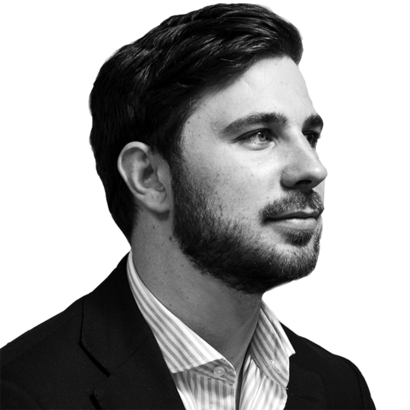Is Alexis Wilkins—the girlfriend of F.B.I. director Kash Patel—a Mossad agent or a proud American? A seductress with an agenda or a Southern sweetheart? A small-town country girl—or the sinister product of an elite European boarding school?
At least two of those questions now rest at the center of a $5 million defamation lawsuit filed late last month by the 27-year-old country singer against a right-wing blowhard who accused her of being in cahoots with the Israeli intelligence service. It’s the third such lawsuit she has filed since August.

Hitting back at the conspiracy theorists, the 45-year-old Patel soon described Wilkins on X as “a true patriot” and “a country music sensation” (the sensation being, presumably, a general numbness), who “has done more for this nation than most will in ten lifetimes.” One such act of patriotism includes singing the national anthem at low-budget wrestling matches.
The lawsuit—and the whole internecine, right-on-right violence of the thing—is far too dull to go into here. But the tinfoil-hat brigade may well be emboldened in their claims by a small chapter in Wilkins’s history that has been largely overlooked: her time as an elementary-school student at Collège du Léman, one of the most expensive and unusual boarding schools on the planet.
When Wilkins sang, in her song “Country Back,” of that golden age “when they flew Old Glory down on Main,” perhaps she had in mind not Main Street, U.S.A., but Chemin Jean-Baptiste Terray, down near the shores of Lake Geneva, Switzerland, where her alma mater is located.

On the one hand, Swiss boarding schools are elite establishments that furnish the brightest and best with lessons in advanced robotics and field trips to Mount Kilimanjaro—all for a price of between $100,000 and $200,000 a year. On the other, they are a sort of Bilderberg crèche, a gilded holding pen for the broiling offspring of despots, kings, and the unthinkably wealthy, “the sons of deranged Turkish billionaires who would beat up kids in the middle of class,” as one alumnus of a notable Swiss school tells me.
The dynamic is not helped by the fact that a number of the venerable Swiss boarding schools are run as for-profit businesses, their leadership often passed down through the generations of one family, like private banks or gout. Kids are not students; they’re clients. One alumnus tells me of a lucrative fine system that operated in his day: 100 Swiss francs for being caught out of your room at night, rising by 50 Swiss francs per hour as the night progressed. “If it was three in the morning and your lights were on, they’d charge you 500 Swiss francs,” he says. “Maybe it cleaned up the school, but also maybe they just profited off bad behavior.”
Not that 500 francs is going to bother this lot. The wealth of pupils at these schools is often absurd, a status quo maintained in part by the very high fees. (Both Institut Le Rosey and Institut auf dem Rosenberg cost around $200,000 a year.) At Institut Le Rosey—a sort of Eton-en-Alps with an alumni list comprising the Aga Khan, Julian Casablancas, Sean Lennon, King Juan Carlos I of Spain, and the Shah of Iran—a job listing posted on the school’s Web site acknowledges that the “facilities are exceptional and that its students hail from wealthy and often eminent families.” But, it continues, “the campus atmosphere is one of civilised, community values rather than privilege: students and their parents are more interested in academic results and a good all-round education than they are in prestige.”
Certainly the highly international mix of students acts as a potent melting point, and the general level of wealth at these places can, paradoxically, be a great leveler between students. If everyone is rich, being rich no longer becomes a point of playground status.
Nevertheless, a definite privilege remains. According to the Gstaad Guy, a social-media influencer known for pulling back the curtain on this ultra-high-net-worth world, Institut Le Rosey students found themselves locked down in the school’s mountain annex at Gstaad during the pandemic. Craving a pizza one evening, they rang up the nearby five-star Alpina hotel but were told that food was only available to hotel guests. So the students booked a suite for two weeks—the required minimum stay at the time, at a cost of around $3,000 a night—met the porter in the hotel’s lobby, and took the pizza back to school. They never set foot in the room.

A student at a rival school recalls how he and his friends wanted to drink in a bar one evening but found it was too busy. So they ordered “a ton of bottles of Dom Pérignon” and carried them outside, “where we’d pop them all and pour them on the street.” At another Swiss boarding school, an impromptu casino was started by a group of 14-year-olds with some of them running up debts in the tens of thousands of dollars before the powers that be put a stop to it.
Other stories speak of pupils using brand-new MacBook Pros as umbrellas and developing exorbitant Loro Piana obsessions. “The kids are trying to be like their rich fathers,” says a former pupil, “or doing their best impression of Gunter Sachs,” the Saint-Moritz playboy ne plus ultra who was a former student at Institut auf dem Rosenberg in St. Gallen.
This vibrant atmosphere, I am told, has been exacerbated by the shifts in global wealth over the past decade. The ultra-rich now come in increasingly strong flavors, and new-money families arrive at these establishments with an entitlement and showiness that the older clans would once have disdained.
Or would they? American journalist Paul Klebnikov worked as a tennis coach at Institut Le Rosey’s summer school in the 1980s and wrote a searing exposé about the school for Forbes. Students allegedly referred to cleaners as “les esclaves” (the slaves) and the locals as “les paysans” (the peasants), he recalled. One day, an altercation allegedly occurred between a teacher and an “obstreperous” Italian heir. “That very evening,” Klebnikov writes, “the father arrived in a Ferrari—trailed by several bodyguards. As many students watched, the father apprehended the math teacher in the central courtyard and humiliated him.”
Klebnikov was also told of a particular arrangement that the young son of a Saudi sheikh had with his bodyguard, who would drive him into town once a week to visit a prostitute. Such behavior, Klebnikov implied, was all part and parcel of a wider education, the first steps to a higher calling. The title of his essay? “Where to Learn to Be a Billionaire.” (In something of a tin-hatted twist, Klebnikov, who became editor of Forbes Russia, was murdered in a Moscow hit in 2004.)
And where does Alexis Wilkins’s old school, Collège du Léman, fit in among this menagerie? Prestige-wise, an old Rosenberger tells me, it is “near the bottom.” The hierarchy runs roughly: Institut Le Rosey, Institut auf dem Rosenberg, Lyceum Alpinum Zuoz, TASIS, Aiglon College, and then Collège du Léman some rungs below.
More technocratic and academic than its shinier equivalents—shockingly, it has no winter ski annex—Collège du Léman has nonetheless attracted an eclectic crowd of wealthy scions, such as Timur Tokayev, the son of the authoritarian president of Kazakhstan, and the children of Mobutu Sese Seko, the former dictator of Zaire. Oh, and one Tucker Carlson, former Fox News host, who was sent here as a teenager—meaning two fixtures of the MAGA-verse spent their salad days among the plutocrats of this rarefied canton, albeit 30 years apart.
Which all points to a subtler charge that the reactionary wingnuts may wish to put to Wilkins. Not that she is an operative of an Israeli-backed honeypot sting, but that she is a member of something far scarier: the global elite. After all, the true value of these schools is not that they furnish the young with an education but that they provide them with a peer group. The Swiss-boarding-school-alumni network is said to be particularly cozy. Upon graduating, pupils at Institut Le Rosey are given access to a powerful contact book of former students.
Perhaps the 27-year-old Wilkins has been so content to rub shoulders in the corridors of power because, in a way, she has already walked them. As an alumnus tells me, “If you wanted to understand, in microcosm, all the world’s problems, you would look to a school like that—and you’d see just what power does to children.”
Joseph Bullmore is a Writer at Large at AIR MAIL and the editor of Gentleman’s Journal in London


